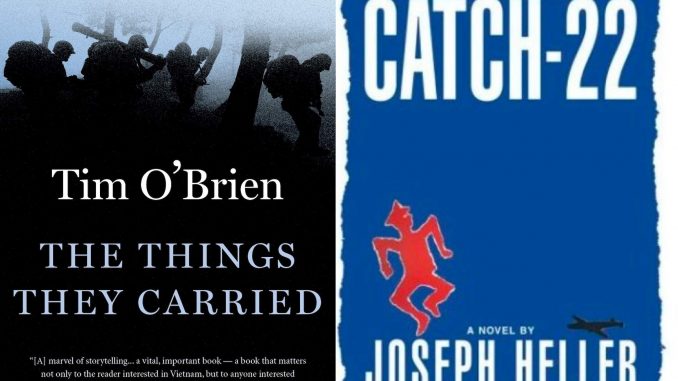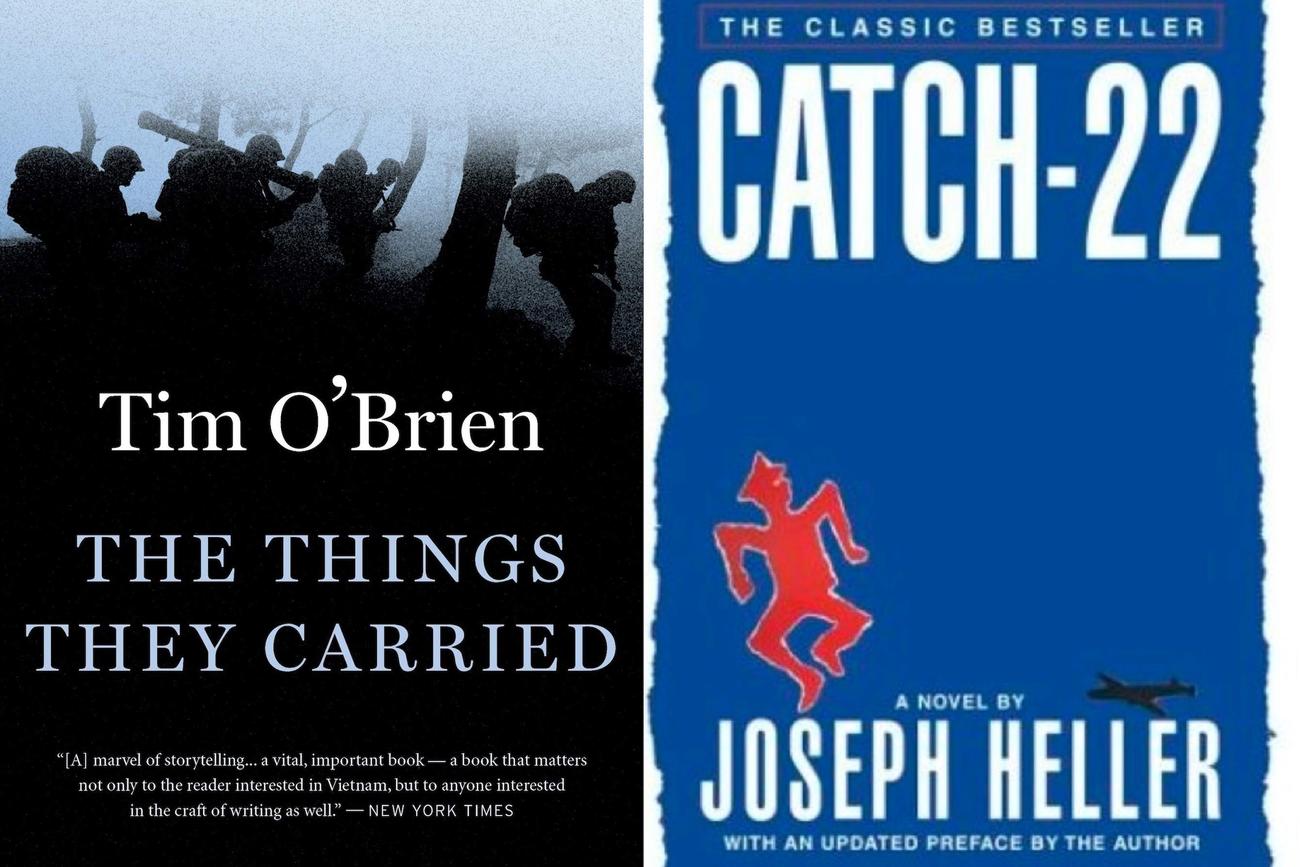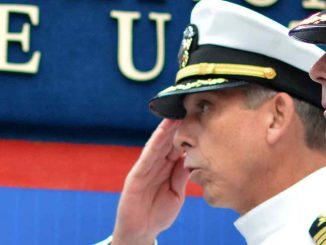

An Alaska school board’s decision to remove four acclaimed novels and one short story collection deemed too “controversial” from high school English reading lists has been reversed.
The 6-1 vote Wednesday by the Matanuska-Susitna Borough School District in Palmer, Alaska, reversed the action taken by the board last month to pull the five books. The board also voted to revisit the issue next year, however.
Read Next: Bombers Take Center Stage in Air Force‘s New Force Employment Strategy
The livestream of the board’s proceedings resurfaced age-old arguments on what reading material is appropriate for young minds. The adults couldn’t agree on that, or even whether what they had done in April actually qualified as a ban since the five books were still available within school libraries.
The books in question were Joseph Heller’s satire “Catch-22,” set in World War II; Tim O’Brien’s short story collection “The Things They Carried,” based on his Vietnam experiences; Ralph Ellison’s “Invisible Man”; and Maya Angelou’s “I Know Why the Caged Bird Sings.”
The fifth book was F. Scott Fitzgerald’s landmark 1925 novel “The Great Gatsby,” which sold poorly at the time but has since come to be acclaimed by some critics as the “Great American Novel.”
The initial objections to “Catch-22” were that it contained “racial slurs” and “scenes of violence;” O’Brien’s book had “profanity and sexual references;” Angelou’s work might be considered “anti-white;” Ellison’s novel had racial slurs; and “Gatsby” had inappropriate language and sexual references.
The school district, headquartered in Palmer, about 40 miles northeast of Anchorage, has an enrollment of more than 19,000 students from kindergarten through 12th grade.
Without going to the merits of the arguments, board president Thomas Bergey said the vote to remove the books had to be rescinded on grounds that it violated procedures under state statutes.
However, “we need to revisit our policy” on the books listed for the high school English elective courses, Bergey said. The board accepted a motion to consult on the issue and come to a decision sometime in May of next year.
Board member James Hart also voted to rescind the previous vote but said there were issues that had to be dealt with in the future on the propriety of the reading lists.
He said he had read “The Great Gatsby” and had no problems with it but also read at the meeting a passage from Angelou’s book describing the sexual violation of a child.
In the hands of minors, is that appropriate?” he asked.
“It really comes down to propriety. It has nothing to do with race,” Hart said.
Board member Ryan Ponder, the lone “No” vote on rescinding, mainly argued that the books had not really been banned. “The facts are, the books can continue to be taught” if teachers had the approval of the principal to keep them on reading lists, he said.
The meeting touched on the weighty issues of freedom of thought and expression that have been debated from the nation’s founding all the way to the Supreme Court, but came to no conclusions.
One of the books that was initially deemed too controversial may have offered some guidance, if not any answers.
Heller’s satire offered up the all-purpose and unwritten explanation for the mind-boggling decisions and procedures of the military. There was no easy way out — of anything. The reason was “Catch-22.”
The main character in the book, Yossarian, finally has Catch-22 explained to him and is in awe of its majesty and scope.
Yossarian thinks he has found a way to get out of flying more bombing missions for fear of being killed or maimed by claiming that the stress has driven him crazy. The Army psychiatrist, Doc Daneeka, tells him it’s been tried before and it can’t be done.
“You mean there’s a catch?”
“Sure there’s a catch,” Doc Daneeka replied. “Catch-22. Anyone who wants to get out of combat duty isn’t really crazy.”
Heller wrote that “There was only one catch and that was Catch-22, which specified that a concern for one’s own safety in the face of dangers that were real and immediate was the process of a rational mind.”
“Orr was crazy and could be grounded. All he had to do was ask; and as soon as he did, he would no longer be crazy and would have to fly more missions. Orr would be crazy to fly more missions and sane if he didn’t, but if he was sane, he had to fly them. If he flew them, he was crazy and didn’t have to; but if he didn’t want to, he was sane and had to.”
“Yossarian was moved very deeply by the absolute simplicity of this clause of Catch-22 and let out a respectful whistle.”
— Richard Sisk can be reached at Richard.Sisk@Military.com.
Related: Alaska School District Votes to Ban 2 Iconic Military Books
© Copyright 2020 Military.com. All rights reserved. This material may not be published, broadcast, rewritten or redistributed.





Be the first to comment